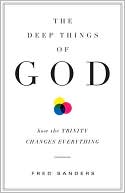Therefore you have no excuse, O man, every one of you who judges. For in passing judgment on another you condemn yourself, because you, the judge, practice the very same things. 2 We know that the judgment of God rightly falls on those who practice such things. 3 Do you suppose, O man—you who judge those who practice such things and yet do them yourself—that you will escape the judgment of God? 4 Or do you presume on the riches of his kindness and forbearance and patience, not knowing that God's kindness is meant to lead you to repentance? 5 But because of your hard and impenitent heart you are storing up wrath for yourself on the day of wrath when God's righteous judgment will be revealed.(Romans 2:1-5)Verse 1 of Romans 2 is perhaps the biggest gotcha verse in the Bible. It turns out that Romans 1:18-32 was a kind of set up. Paul is writing to a mixed congregation in Rome, partly Jew partly Gentile. The Jews, along with most Jews of Paul’s day, would have read the last part of chapter 1 with some relish. “Get’em Paul,” would have been their thought. “Idolatry, homosexuality, a total decline in moral standards, those Gentiles justly reap the repercussions of their sin.” Then comes chapter 2:1, “Therefore you have no excuse.” “No excuse” like the pagan who suppresses the truth in unrighteousness. Only this time it is not the pagan Paul is addressing: “You have no excuse, O man, every one of you who judges.” If you happened to be reading verses 1:18-32 and thinking certain groups of people (i.e. American culture, western society as a whole, Hollywood, the gay community, etc.) justly deserve God’s retribution, that is you were cooly judging them, then you too have no excuse. You too stand condemned before God.
In fact, you are the very one who condemns yourself, for you condemn what you practice. Envy, strife, deceit, gossip, slander, boasting, disobedient to parents, faithless, heartless, are you innocent of these? We hold that God rightly judges such practices, so does he not also judge you? Paul’s logic here is devastating. There is really no escape.
But there is one more path to possibly get us off the hook, the path of God’s mercy. Jews could easily conclude, “Yes, well we are God’s chosen, and he is a God of mercy and compassion.” They even had some historical precedence for such a hope. God did put up with a lot of garbage from Israel. Of course, this objection comes to us today in various forms. It is the “God is love” objection. If God is a loving God will he really judge us severely? We too have some historical, biblical, and theological precedence for the belief. God is declared by and demonstrated in Scripture to be gracious, patient, and long-suffering. But there are two ways to look at God’s patience. One is to say that God is just over-looking our disobedience. Most assume this option. The alternative is what Paul agues: “God’s kindness is meant to lead you to repentance.” Mercy is meant merely to give you more time to repent. God is passing over your sin. He is just delaying your judgment. Therefore, the longer you fail to repent the more wrath you “store up” for yourself. Thus, in this small passage Paul has leveled the paths of self-righteousness (“those people over there deserve God’s judgment) and indulgence (“God will tolerate my failures because He is a God of love”). But more on that later.









No comments:
Post a Comment